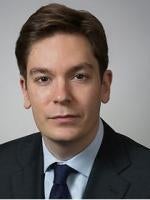On March 3, 2021, the U.S. Embassy to France announced significant changes in the criteria for granting “National Interest Exemptions” (“NIE waiver”) to certain foreign travelers coming to the United States. The U.S. Embassy strongly advised persons currently in the United States on E, H, L, O, or P visas not leave the United States for trips back to France unless “they understand that they may not be able to re-enter the United States for some time.” In particular, these changes will favor specialists in critical infrastructures to get a NIE waiver, as opposed to senior executives who will generally be denied. The U.S. Embassy further indicated that no information has been provided as to when such new criteria for exceptions will be lifted. These changes will likely be enforced by all of the U.S. Embassies in Europe for at least the near future.
These are the new changes, effective immediately:
-
The following previously excepted categories no longer automatically qualify for NIEs granted at post:
-
Professional Athletes (P category visas and some traveling on B visas or ESTA) (The league or competition sponsor must apply to Customs and Border Protection (CBP) directly for an NIE).
-
-
For Investor and Trader (E category visas), E Visa applicants must meet the new and more restrictive standards below:
The “provide substantial economic benefit” standard is being replaced by a “vital support of critical infrastructure sectors as defined by the Department of Homeland Security or critical infrastructure linked supply chain” standard and a ”directly support the creation or retention of U.S. jobs” standard.
Such designated critical infrastructure industries are, per the Department of Homeland Security/Cybersecurity and Infrastructure Security Agency (DHS/CISA) list:
-
Chemical Sector
-
Commercial Facilities Sector
-
Communications Sector
-
Critical Manufacturing Sector
-
Dams Sector
-
Defense Industrial Base Sector
-
Emergency Services Sector
-
Energy Sector
-
Financial Services Sector
-
Food and Agriculture Sector
-
Government Facilities Sector
-
Healthcare and Public Health Sector
-
Information Technology Sector
-
Nuclear Reactors, Materials, and Waste Sector
-
Transportation Systems Sector
-
Water and Wastewater Systems Sector
Further, the travel must be directly related to supporting the infrastructure.
The Embassy also specifies that it “cannot approve at post exceptions based on the “directly support the creation or retention of U.S. jobs” standard, as these cases must be referred to the Department for approvals by the Assistant Secretary of Consular Affairs.”
The communication of the Embassy underlines that “these exceptions are expected to be very rare and the criteria is very stringent.”
-
Before a case can be sent forward, “Each applicant should demonstrate to the satisfaction of a consular officer that the proposed activity must physically take place in the United States and cannot be postponed or conducted remotely.”
-
The examples given in Department guidance differentiate between those that would qualify – specialist repairing assembly lines to allow U.S. workers to work – and those that would not – investors seeking to see/purchase new property or equipment.
The Embassy concludes that under these new criteria, many of the person to whom we have granted NIEs in the past would not qualify, which includes many E visa investors and senior executives in several visa categories or on ESTA travel. As such, the Embassy indicated that it is cancelling all E visa appointments scheduled for the next month and asking the applicants to request an expedited appointment if they feel they qualify for an exception under these new restrictions.
Concerning the current Presidential Proclamation 10052 that is suspending visas for H and L categories, as well as some J visa programs, it remains in force through March 31, 2021. If such Presidential Proclamation terminates on March 31, 2021, H, L and certain J visa applicants would then have to meet these new criteria if traveling from a Schengen country.
We note that the U.S. Embassy in Paris indicated that the following are not impacted but these changes:
-
Any NIE already granted remains valid.
-
The following visa categories still do not need NIEs: diplomats (A or G visas), air and ship crew (C1/D visas), students (F and M visas).
-
United States citizens (USC), United States Legal Permanent Residents (LPR – Green-card holders); spouses of USCs and LPRs, minor children of USCs and LPRs, and parents of minor USCs and LPRs remain exempt.
-
Exceptions for Journalists and J1 Academic and Research Exchange visitors continue.
-
Exceptions for humanitarian cases continue, including for au pairs going to families whose parents are involved in direct treatment of COVID-19 patients.
-
Exceptions for persons traveling to treat COVID patients or do public health research in any visa category continue.
-
NIEs are still valid for one entry and thirty days; each trip requires a new justification and NIE.





 />i
/>i

